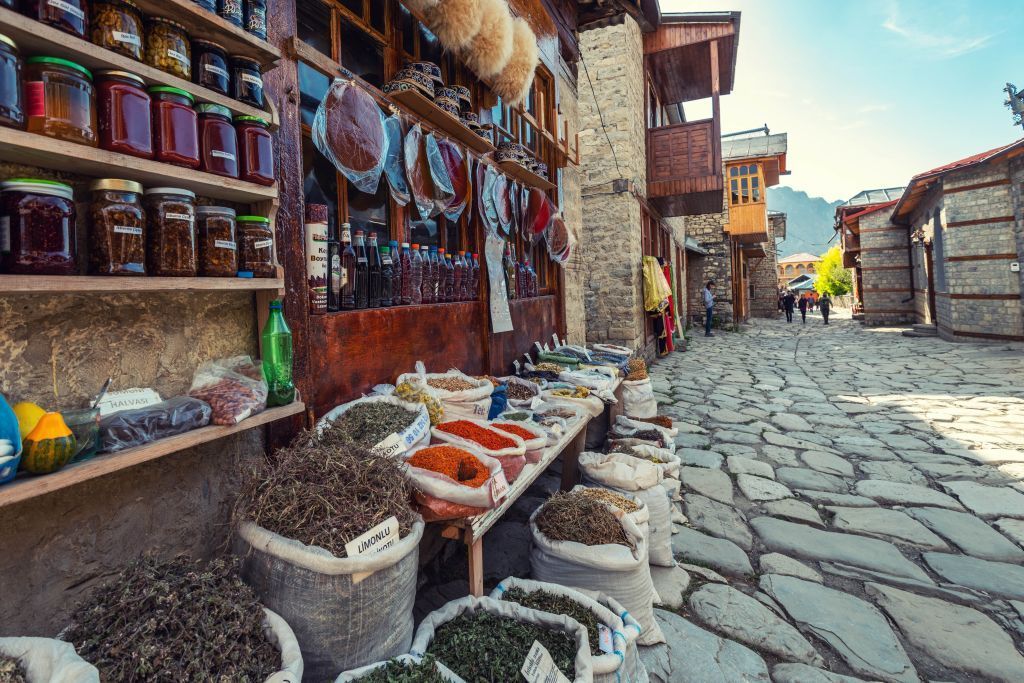On 9 December 2021, the closing ceremony of the EU-funded COVCHEG (Community-based Value Chain Enhancement in the Greater Caucasus Mountains Area) project, coordinated by Slow Food in partnership with the Azerbaijan Tourism Board (ATB), was held in Sheki, the UNESCO-listed authentic city of Azerbaijan.
The COVCHEG project, which aims at preserving local gastronomy and cultural heritage with a special emphasis on economic regeneration and the well-being of rural communities, is another step by ATB in building sustainable tourism experiences for visitors.
“Azerbaijan’s many great assets, including its favourable climate and natural resources, have allowed us to develop the Slow Food Travel concept here within the COVCHEG project. It is one of ATB’s very important steps towards building sustainable tourism in Azerbaijan. With relevant stakeholders involved in the process, we will continue our work to develop captivating experiences in this direction”, said Florian Sengstschmid, CEO of Azerbaijan Tourism Board.
In order to sustain quality production and protect unique regions while recovering traditional processing methods, 5 Slow Food Presidia in Azerbaijan were established within the project. These Presidia bring together local producers of food varieties included in the international Slow Food catalogue – the Ark of Taste. A national Ark of Taste menu of Azerbaijan was also put together using different types of products listed in this catalogue, such as Rushanka onion, Ata-baba hazelnuts, Caucasian buffalo yoghurt and other important local produce that need to be put back on the table.
There are also 11 Azerbaijani cooks who are members of the Slow Food Cooks’ Alliance. Using products from Presidia projects and the Ark of Taste and giving visibility to small producers, they contribute to protecting agricultural biodiversity and safeguarding gastronomic knowledge and local cultures. Members of this international network also travel, meet with one another and cook together to transfer local knowledge to relevant stakeholders all around the world.
Another highlight of the project is the development of the Slow Food Travel (SFT) concept, which brings local producers and gastronomic communities in certain regions and multiple parts of the tourism value chain together. The concept allows travellers to enrich their experience through meetings with farmers, cheesemakers, herders, winemakers and other local producers to learn about different types of food which have been produced since ancient times.
To make this experience accessible, an SFT map in Azerbaijan has been prepared, which shows the local producers to meet, products to taste and places to visit across the north-western route of the country in Shamakhi, Ismayilli, Gabala, Sheki and Gakh. Each of these regions is famous for its rich historical and cultural heritage and breathtaking landscapes, along with at least one product.
“The great potential of the project has been fully confirmed during these past years, and Slow Food is proud to have been able to give support and visibility to small-scale producers, chefs and citizens working in the country. As Slow Food, we are going to continue to work in Azerbaijan through the newly-created network and contributing to a positive change in the food production and consumption system, making it good, clean, fair and accessible to all”, said Paolo di Croce, Secretary General of Slow Food International.
There are now 60 SFT partners who provide a wide range of services, from available gastronomic experiences to accommodation options, within the designated routes in Azerbaijan.
For more information about Slow Food in Azerbaijan and its results, please visit the Slow Food – COVCHEG website.







